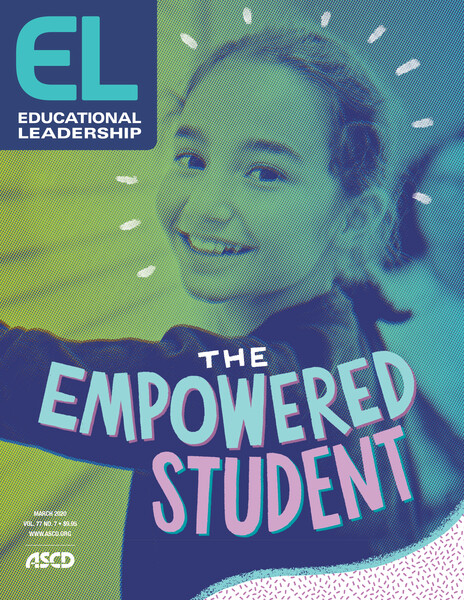ASCD has started an international conversation with educators about their well-being—and we'd like your input.
The past several years have seen a surge in interest among educators, policymakers, and the public in social-emotional learning (SEL). This growing awareness has been strengthened by newfound understandings of how strategies for strengthening social-emotional skills support learning, the importance of mental health to youth development and well-being, and greater acceptance of an approach to education that prioritizes both the academic and nonacademic needs of students, so kids become well-rounded graduates—a whole-child approach.
Indeed, one of the most successful outcomes of ASCD's decade-long effort to promote a whole-child education has been the focus on promoting social-emotional learning, which is a major, although not exclusive, strategy educators can use to ensure that all students are healthy, safe, engaged, supported, and challenged.
What About the SEL of Adults?
The social-emotional learning focus has been student-centered—as it should be. But for students to be truly supported in a whole child context, educators' well-being must also be addressed. Obviously, educator well-being is important in and of itself. Yet the emotional and social health of school adults is also essential if we want students to learn about what emotional health looks like and how it feels to be among people who have strong SEL skills—and thus be well-cared for, too. SEL must be a part of school culture that suffuses the whole community: students, educators, administrators, parents, and all stakeholders. As Douglas Fisher, Nancy Frey, and Dominique Smith note in All Learning Is Social and Emotional (ASCD, 2019):
A school that successfully weaves SEL into the fabric of its academic learning and its policies and procedures doesn't get that way by chance. School leaders, staff, and families collaborate with intention to create these conditions. … Doing this work, and meeting its many challenges, is only possible if the adults in the school are themselves SEL-competent. (p. 13)
Share Your Thoughts on Whole Educators in Our Forum
With this in mind, ASCD is hosting an "ASCD Forum" to solicit the input and ideas of educators at all levels and from all areas on ways to support the "whole educator." This will be an online conversation that we hope anyone connected to ASCD and its mission will feel free to join. To contribute to the discussion—or just follow along with what is being said—look for the ASCD Forum-branded content in ASCD publications and on our website, and the #ASCDForum hashtag on our social media channels.
There will be plenty of opportunities for educators to participate in these activities—such as webinars and Twitter chats. Check out www.ascd.org/forum for more information and to stay up to date on all the happenings and, of course, the discussion. The forum will examine key school, leadership, and personnel questions related to educator well-being, including:
How can teachers make their well-being a priority for themselves?
How can teachers model this for their students?
How can teacher leadership play a role?
promote a culture that supports well-being through relationships and acceptance?
foster and sustain relationships and connections among the school community?
provide time for educators to build relationships with families and friends?
create proactive systems, processes, and policies to support adult well-being and implement strategies to promote social-emotional well-being in the workplace?
In this forum, we'll also explore the effect educators' level of well-being has on aspects of school operations—and vice versa. Factors like rising health insurance costs, educator absenteeism, burnout and leaving the profession, and teacher recruitment are sure to be considered.
Seeking Your Perspectives!
We hope you find this topic and the questions we're trying to answer of great interest—and will share your thoughts and personal experiences on this important issue. Participation couldn't be easier because of the open and online nature of the conversation.
There will also be an in-person ASCD Forum session at Empower20 in Los Angeles. If you're at the conference, just check the program agenda for the day, time, and room location … and join us! The forum is open to all educators, but we'd especially like to hear from our members. Your perspective will be invaluable as we seek a true understanding of the real-life effects, practical challenges, and possible solutions to help improve educator well-being across the United States and around the world. With your input, ASCD will continue to support a whole-child education by leading the effort to adopt strategies, develop resources, and implement practices for the care and well-being of all the students and educators in a school.






